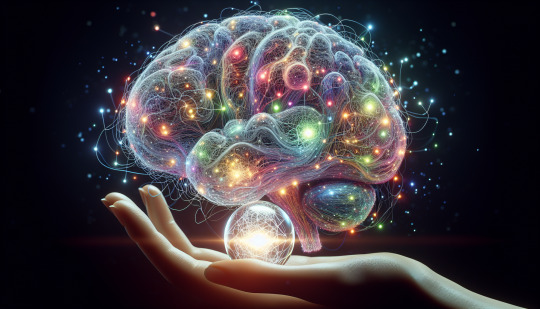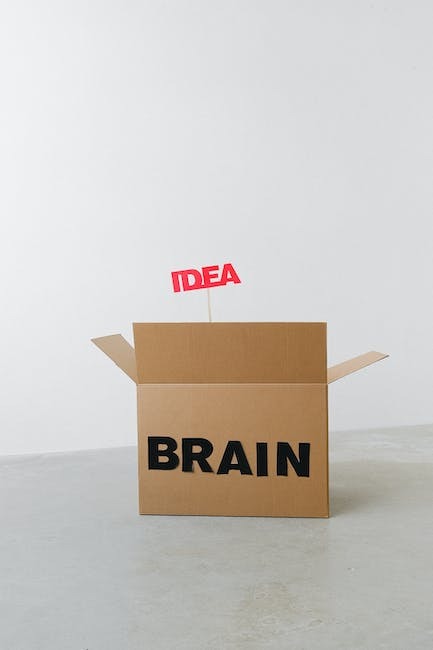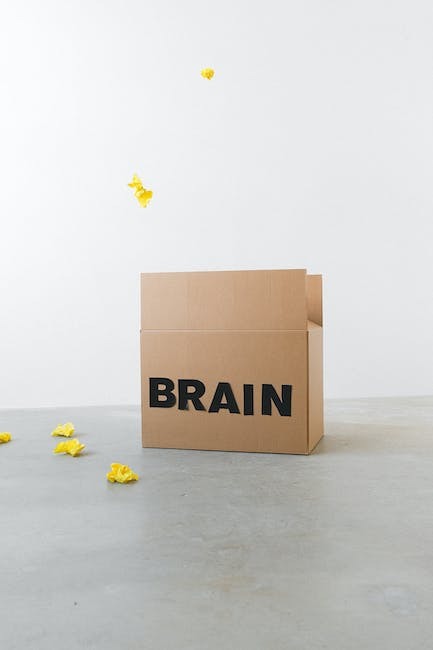#ConcentrationMatters
Explore tagged Tumblr posts
Text
How to Get Good Marks in Exams Powerful Tips
How to you get good marks in an exam? This question comes to the mind of almost all students, and they want to make a good strategy for studying to get good marks, but many students face problems in formulating strategies and searching for the best strategies to study and learn. However, there is no easy answer to "how to score good marks in exams." Different students may require different methods and skills. Here is an article that will give you some useful tips and tricks on studying efficiently and scoring good marks in exams.

Best Study Strategies to Score Good Grades in Exams
To succeed in any exam, you need to master the best study techniques that can help you learn new concepts, review old ideas, and maintain your progress. Here are the best study tips to increase your score.
To score full marks in all the exams, you have to put in a lot of effort, focus on your studies, and use smart learning methods to remember the topics better in the exam hall. You have to remain optimistic about your goal and overcome obstacles.
Scientists say the best time to study is from 10:00 am to 2:00 pm and from 4:00 pm to 10:00 pm. The least effective time to study is from 4:00 am to 7:00 am, so if you have to work and study, it may be better to study at night than in the morning.
Make a Study Plan
You need a well-crafted study plan to perform well in exams, be they boards or competitive. Divide the topics (for school/college exams) or sections (for competitive exams) you have to study into different days, and at the beginning of each day, do something to review what you studied the previous day. Allocate time. This will help you plan what you will learn the next day and stick to your study plan, saving you a lot of time in planning every day and every topic or section.
Practice Sample Papers and Mock Tests
The best way to check your understanding of the material is to take the previous year papers and mock tests. These tests can help you prepare for exam day by letting you know how well you can complete the mock exam in the allotted time. To score good marks in the exam, you should practice samples and mock tests a few days before the final exam after studying each topic or section. Use a timer, take a sample paper, and take the test as if it were a real exam. This will also help you identify which sections take you more time and where you can save time.

Take a Break From Books
Studying for board exams and competitive exams requires a lot of hard work and dedication. However, it is also essential to take regular breaks to rest your mind and body. Constant studying can cause stress and fatigue, which can affect your learning and concentration. Therefore, you should take a break of 20 minutes after every two hours of studying. During this time, you can do some meditation or go for a walk to feel refreshed.
Conclusion
Studying hard for exams does not put pressure on students; rather, they can improve their performance by adopting some good habits and changes. We hope this article has given you some useful tips and effective ways how to score well in the exam. We know that exam preparation can be very challenging and can create uncertainty. Together with our registered tutors at Perfect Tutor, you can plan a career path that suits your strengths so that you can pursue your dreams without any hindrance.
0 notes
Text
Memory Processes

Memory processes are the mental functions involved in retaining, recalling, and using information. Understanding these processes is crucial for enhancing learning, improving task management, and navigating daily life.
Key Takeaways
- Memory processes are essential for learning, decision-making, and functioning in daily life. - There are three main stages of memory: encoding, storage, and retrieval. - Dual-process theories explain the fast, automatic processing and slow, deliberate processing of information. - Techniques such as rehearsal, chunking, and mnemonic devices can enhance memory and learning. - Biological factors, including brain-derived neurotrophic factor (BDNF) and phase synchronization, play a role in memory processes. - Memory processes are critical in skill acquisition and are affected by psychological factors and disorders.
Introduction to Memory Processes
Definition of Memory Memory is the faculty by which the brain encodes, stores, and retrieves information. It is a dynamic system that allows individuals to retain experiences and knowledge over time, playing a pivotal role in learning and behavior. Overview of Memory Stages Encoding Encoding is the initial learning of information, where sensory input is transformed into a form that can be processed and stored. Storage Storage refers to maintaining information over periods of time, ranging from brief to extended durations. Retrieval Retrieval is the ability to access stored information when needed, completing the memory process.

How Memory Works
Encoding Information Sensory Input The journey of memory begins with sensory input, where external stimuli are captured by the senses and converted into neural signals. Processing and Combining Information This information is then processed and combined with existing knowledge, a step crucial for the formation of new memories. Storage of Memories Short-Term Memory Short-term memory holds information temporarily, allowing for immediate use and manipulation, a concept closely related to focus and concentration. Long-Term Memory Long-term memory is the extended storage of information, which can be recalled long after the initial learning has occurred. Retrieval of Stored Information Recall Recall is the process of bringing previously learned information to mind without the presence of the original stimulus. Recognition Recognition involves identifying information in the presence of cues, a simpler form of retrieval.

Dual-Process Theory
System 1: Fast and Automatic Processing System 1 operates quickly and effortlessly, handling familiar tasks and making rapid judgments. System 2: Slow and Deliberate Processing System 2 is slower and more deliberate, taking charge of complex problem-solving and unfamiliar situations. Interaction Between the Two Systems The interaction between these systems influences how we learn and make decisions, as detailed in studies on learning and conditioning.

Dual-Process Theories and Learning
Implications for Learning Strategies Engaging Automatic Processing Leveraging automatic processing can make learning more efficient, as it requires less cognitive effort. Engaging Deliberate Processing Deliberate processing, though more demanding, is essential for understanding complex concepts and mastering new skills. Enhancing Memory and Learning Rehearsal Techniques Rehearsal techniques involve the repetition of information to transfer it from short-term to long-term memory. Chunking Information Chunking breaks down large pieces of information into smaller, manageable units, making them easier to remember. Mnemonic Devices Mnemonic devices are memory aids that help encode information in a way that is easier to recall.

Improving Recall
Techniques for Better Memory Effective Rehearsal Effective rehearsal goes beyond simple repetition, involving deeper engagement with the material. Use of Chunking Chunking can be particularly useful in task management, helping to organize and remember various responsibilities. Mnemonic Devices Mnemonic devices, such as acronyms or visual imagery, can significantly improve recall. Practice and Repetition Consistent practice and repetition strengthen the neural connections associated with memories, solidifying them over time. Environmental Factors Influencing Recall The environment in which learning and recall occur can greatly affect memory processes, a concept explored in distraction management.

Biological Aspects of Memory Processes
Brain-Derived Neurotrophic Factor (BDNF) Role in Synaptic Plasticity BDNF is a protein that plays a key role in synaptic plasticity, the ability of synapses to strengthen or weaken over time, which is essential for learning and memory. BDNF/TrkB Signaling Pathway The BDNF/TrkB signaling pathway is involved in the growth and maintenance of neurons, crucial for long-term memory formation (source). Phase Synchronization in the Brain Memory Formation Phase synchronization, the harmonious firing of neurons, is important for the formation of memories. Memory Retrieval Similarly, synchronized neural activity is involved in the retrieval of stored information.

Memory Processes in Skill Acquisition
Learning vs. Performance Distinction Definitions and Differences Learning refers to the acquisition of knowledge or skills, while performance is the application of what has been learned. Memory Processes in Motor Skills Memory processes are particularly important in the acquisition of motor skills, where practice leads to more fluid and automatic performance. Practice and Skill Consolidation Repeated practice not only improves performance but also leads to skill consolidation, where movements become more automatic and require less conscious effort. https://www.youtube.com/watch?v=bSycdIx-C48
The Role of Psychology in Understanding Memory
Psychological Studies on Memory Cognitive Processes Psychological research delves into the cognitive processes involved in memory, exploring how information is encoded, stored, and retrieved. Behavioral Aspects Behavioral aspects of memory examine how our actions and experiences influence and are influenced by our memory processes. Memory Disorders and Their Impact Amnesia Amnesia is a disorder characterized by the inability to remember information, often due to brain injury or disease. Dementia Dementia, including conditions like Alzheimer's disease, involves the deterioration of memory and cognitive function over time.

Conclusion
Summary of Memory Processes The memory processes of encoding, storage, and retrieval are fundamental to our ability to function and thrive in a complex world. Importance of Memory in Daily Life Memory is essential for everyday activities, from learning new skills to navigating social interactions and making decisions. Future Directions in Memory Research Ongoing research continues to unravel the complexities of memory, with the potential to develop new strategies for enhancing memory and treating disorders. Understanding how psychologists study behavior and mental processes, including memory, provides valuable insights into the human mind (source). https://www.youtube.com/watch?v=pMMRE4Q2FGk
Unlock the Mysteries of Your Mind: Memory Processes FAQ
What are the main types of memory processes?The main types of memory processes include encoding, which is the initial learning of information; storage, which involves maintaining information over time; and retrieval, which is the ability to access information when you need it. These processes work together to allow us to take in new information, store it, and recall it later on.How does short-term memory differ from long-term memory?Short-term memory, also known as working memory, is the capacity to hold a small amount of information in an active, readily available state for a short period of time. Long-term memory, on the other hand, refers to the storage of information over an extended period. While short-term memory has a limited capacity and duration, long-term memory can store larger quantities of information for potentially unlimited durations.Can we improve our memory processes?Yes, memory processes can be improved through various techniques such as regular mental exercises, mnemonic devices, adequate sleep, healthy nutrition, and staying physically active. Engaging in activities that challenge your brain, like puzzles or learning new skills, can also enhance memory.What role does attention play in memory?Attention is critical for memory because it influences the initial encoding of information. Without proper attention, information may not be effectively encoded into short-term memory, making it less likely to be transferred into long-term memory. Focused attention helps filter out distractions and enhances the likelihood that an experience will be remembered.Why do we forget information?Forgetting can occur for several reasons, including the failure to encode information properly, the decay of memory traces over time, interference from other information, and retrieval failure. Sometimes, forgetting is a result of the brain's way of prioritizing information and discarding what is no longer relevant.What is the difference between explicit and implicit memory?Explicit memory, or declarative memory, involves conscious recollection of information such as facts and events. It is further divided into episodic memory (personal experiences) and semantic memory (general knowledge). Implicit memory, or non-declarative memory, refers to unconscious memories such as skills and conditioned responses.How does stress affect memory?Stress can both positively and negatively affect memory. Short-term stress can enhance the formation of memories due to the release of stress hormones. However, chronic stress can impair memory processes, particularly the retrieval of information, by damaging areas of the brain such as the hippocampus, which is crucial for memory.What is memory consolidation?Memory consolidation is the process by which short-term memories are transformed into long-term memories. This involves the stabilization and integration of new information into existing knowledge networks in the brain. Consolidation typically occurs during sleep, highlighting the importance of a good night's rest for memory formation.Are there any diseases that specifically affect memory?Yes, there are several diseases that can affect memory, with Alzheimer's disease being one of the most well-known. Alzheimer's disease and other forms of dementia can lead to progressive memory loss. Other conditions like stroke, traumatic brain injury, and certain infections can also impact memory processes.Is it possible to have a 'photographic' memory?The concept of a 'photographic' or eidetic memory, where a person can recall images, sounds, or objects with high precision, is a subject of debate among psychologists. While some individuals may have exceptional memory abilities, a true photographic memory has not been conclusively proven to exist in scientific studies. Read the full article
0 notes
Text
Sustained attention
Sustained Attention: A Key to Success I. Introduction Sustained attention, also known as focused attention, is the cognitive ability to concentrate on a task or stimulus over a prolonged period. It’s the mental stamina that keeps us engaged in activities that require continuous mental effort. This type of attention is crucial for achieving goals, learning new skills, and maintaining…

View On WordPress
#AttentionSpan#ConcentrationMatters#FocusOn#MindfulFocus#Mindfulness#StayAttentive#StayEngaged#StayFocused
0 notes
Text

Concentration Solution
A concentration solution refers to a solution that has a relatively high amount of solute dissolved in a given volume of solvent. This means that the solute-to-solvent ratio is quite high compared to a dilute solution. Concentration can be measured in various ways, such as molarity (moles of solute per liter of solution), molality (moles of solute per kilogram of solvent), or by using mass percent. The concentration of a solution plays an important role in many chemical reactions and processes, as it affects the rate of reaction, solubility, and physical properties like boiling and freezing points. In laboratory settings, concentration solutions are often prepared for experiments that require precise measurements and control of solute amounts. If needed, a concentrated solution can be diluted to a lower concentration by adding more solvent, which is a common practice in chemistry.
International Chemistry Scientist Awards
Website: chemistryscientists.org
Contact us: [email protected]
Nominate now: https://chemistryscientists.org/award-nomination/?ecategory=Awards&rcategory=Awardee
#sciencefather#researchawards#Professor,#Lecturer,#Scientist,#Scholar,#Researcher#ConcentrationSolution #Chemistry #SolutionChemistry #Molarity #Molality #Solute #Solvent #ChemicalConcentration #Dilution #LabLife #STEM #Science #ChemicalReactions #PhysicalChemistry #LaboratoryExperiments #ConcentrationMatters #ChemistryLovers #ScienceExperiments #EducationalScience
👉 Don’t forget to like, share, and subscribe for more exciting content!
Get Connected Here: =============
Blogger : https://www.blogger.com/blog/post/edit/6961521080043227535/467226973388921229
Twitter : https://x.com/chemistryS79687
Pinterest : https://in.pinterest.com/chemistryaward/
Instagram: https://www.instagram.com/alishaaishu01/
Youtube : https://www.youtube.com/channel/UCAD_pDvz3ZHqv_3hf-N0taQ
0 notes
Text
FOCUS IS KEY: Prioritizing Concentration for Success | The Ones Who Own #focusonyourgoals
FOCUS IS KEY: Prioritizing Concentration for Success | The Ones Who Own #focusonyourgoals https://www.youtube.com/watch?v=-Xd-dmM1coo Embrace the mantra "Stay focused, that's all that matters" as a guiding principle for achieving your goals. Explore the importance of concentration and dedication in navigating towards success amidst distractions. ✅ Subscribe To My Channel For More Videos: https://www.youtube.com/@The-Ones-Who-Own/?sub_confirmation=1 ============================== ✅ Other Videos You Might Be Interested In Watching: 👉 What Does a $340 Million Mansion Look Like? Exclusive Tour Inside! | The Ones Who Own https://www.youtube.com/watch?v=2odqb60pq2U 👉 Inside Putin's World of Wealth: Exploring His Most Expensive Luxuries! | The Ones Who Own https://www.youtube.com/watch?v=3lfXhzgvoas 👉 What's Inside a $818 Million Home? 2024's Luxury Mansions Revealed! | The Ones Who Own https://www.youtube.com/watch?v=F81Fj5sH6Jo 👉 Inside the World's Most Fancy Homes: The Ultimate Luxury Tour! | The Ones Who Own https://www.youtube.com/watch?v=aMaGhXfCF4A ============================= ✅ About The Ones Who Own: Welcome to "The Ones Who Own" – a lavish escape into the world of opulence and refinement. Immerse yourself in the epitome of luxury living as we explore the extravagant lifestyles, exquisite destinations, and exclusive experiences of those who truly own the extraordinary. From high-end fashion to breathtaking travel, fine dining to cutting-edge technology, join us on a journey where only the most discerning taste meets unparalleled sophistication. Elevate your standards with us and discover what it truly means to be among "The Ones Who Own." Indulge in a world where luxury knows no bounds, and join our community of connoisseurs in celebrating the extraordinary. 🔔 Subscribe to my channel for more videos: https://www.youtube.com/@The-Ones-Who-Own/?sub_confirmation=1 ===================== #FocusForSuccess #ConcentrationMatters #GoalAchievementMindset #DedicationToResults #nodrinking #nosmoking Disclaimer: We do not accept any liability for any loss or damage which is incurred from you acting or not acting as a result of reading any of our publications. You acknowledge that you use the information we provide at your own risk. Do your own research. Copyright Disclaimer: Under Section 107 of the Copyright Act 1976, allowance is made for "fair use" for purposes such as criticism, comment, news reporting, teaching, scholarship and research. Fair use is a use permitted by copyright statute that might otherwise be infringing. Non-profit, educational or personal use tips the balance in favor of fair use © The Ones Who Own via The Ones Who Own https://www.youtube.com/channel/UCmx_4FwB9XJs266dDqqF-XQ March 26, 2024 at 10:00AM
#biggestyachts#luxurysailing#adventure#luxurylifestyle#travel#billionairekids#fromrichestostruggles#wealthtopoverty#luxuryliving#homewonders
0 notes